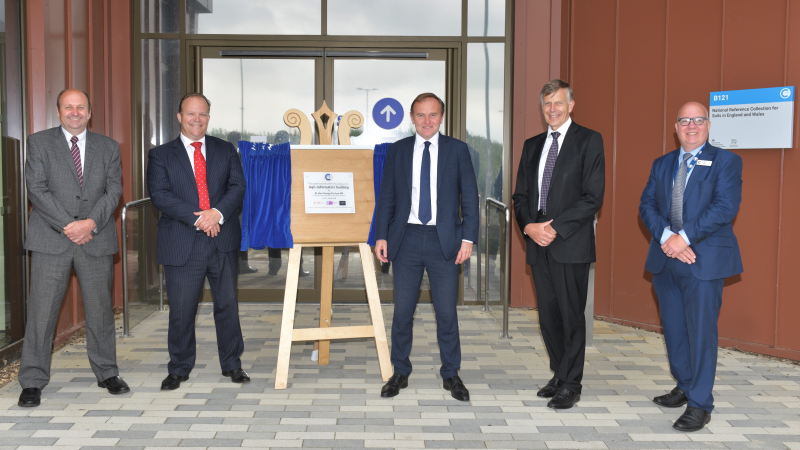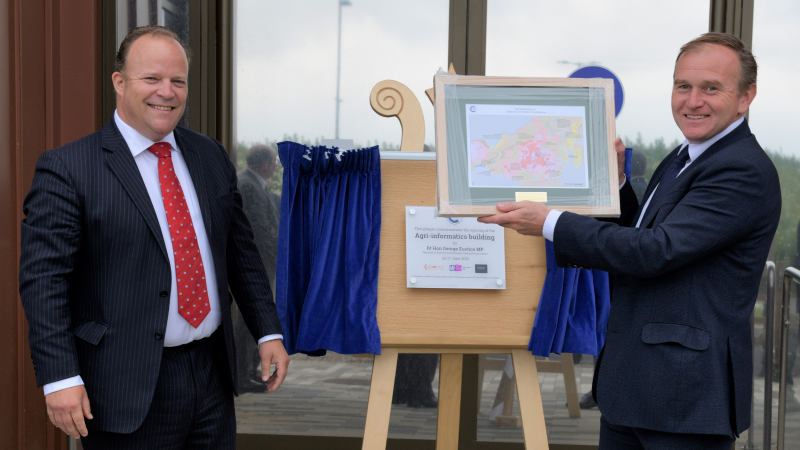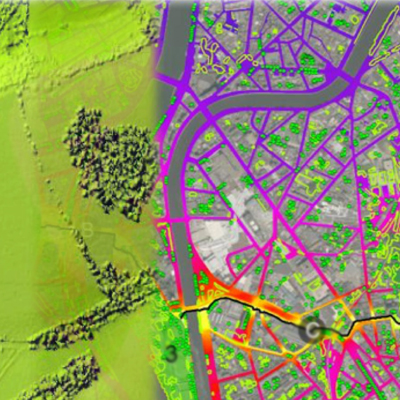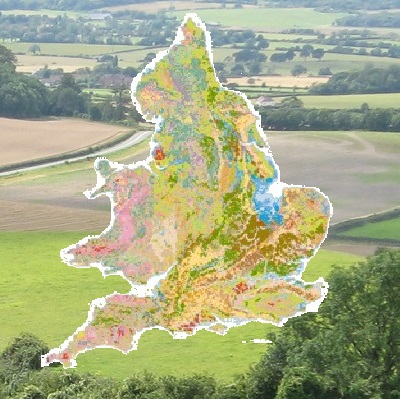
A new £3.2 million Agri-informatics facility has today been officially opened at Cranfield University by Rt Hon. George Eustice MP, the Secretary of State for Environment, Food and Rural Affairs.
Cranfield and its partners will use the facility to create innovative informatics to support novel business, management and policy approaches in the agricultural sector. It will be shared with Agri-EPI Centre, one of the UK’s four Agri-Tech Centres, which will focus on agri-tech research and innovation to accelerate the development and adoption of precision data agriculture and engineering technologies that boost sustainable productivity across the whole agri-food chain.
The new facility will also be the home of the National Reference Centre for Soils and associated land information system, LandIS. In 2017, Cranfield University was awarded the Queen’s Anniversary Prize for its research and education in large-scale soil and environmental data for the sustainable use of natural resources in the UK and worldwide.
The new facility has been funded in partnership by Cranfield University, Innovate UK through Agri-EPI Centre Ltd, and the Wolfson Foundation
The Environment Secretary, George Eustice, said: “Cranfield has a world-leading role in driving agricultural innovation and development and I was pleased to open the new facility today. Soil health is central to delivering our objectives on biodiversity and profitable agriculture and this new centre will ensure that the policies we plan are underpinned with world-leading science.”
Professor Leon A. Terry, Director of Environment and Agrifood at Cranfield University, said: “This new Agri-informatics facility will play a vital role in bringing forward digital innovations in agriculture. By utilising data science, we can create new technological interventions that will improve crop yields, improve soil health and reduce food waste. All of these are vital to reducing the environmental impact of agricultural production.
“In the year that the UK hosts COP26, we are proud of the role Cranfield continues to play in bringing forward technological solutions to mitigate environmental pressures.”
Dave Ross, Chief Executive of Agri-EPI Centre, said: “We are delighted to share this key facility at Cranfield. The Agri-Informatics facility will provide a key complement to our existing facilities at Cranfield, and allow us to foster collaborations with both industry and academia to meet the significant productivity and environmental challenges facing the agri-food sector, now and in the future”
Ian Cox, Agri-Tech Centres Lead at Innovate UK, said: “I am delighted this this new joint facility, part-funded by Innovate UK as a result of the UK’s Agri-Tech Strategy is now open. It will expand the capabilities of both Agri-EPI and Cranfield University, and will help to address some of the major challenges facing not only the UK but the world around how we feed everybody sustainably. Not only that but the facility will help to drive forward the competitiveness of the UK’s growing agri-tech sector into the next decade and beyond.”
Professor Sir Peter Gregson, Vice-Chancellor and Chief Executive of Cranfield University, said: “Cranfield has a proud tradition of making world-leading contributions to the environment and agricultural sectors, recognised by our Queen’s Anniversary Prize for soil science. This new facility will play a key role in addressing future research challenges and will be an invaluable resource in achieving the goals set out in the Government’s 25-year Environment Plan.”

Notes for editors
Agri-EPI Centre is accelerating the adoption of precision agriculture and engineering technologies to boost productivity across the whole agri-food chain. It does this by exploring how to optimise performance of highly complex agricultural production and processing systems. The Centre provides world-class R&D facilities, connects academia and industry and progresses next generation technologies such as sensing, imaging and robotics to create a new understanding of production efficiency. Agri-EPI works with 28 ‘satellite’ farms across the UK where new technologies and techniques are researched, developed, trialled and shared in commercial farm settings. www.agri-epicentre.com
Innovate UK is the UK's Innovation Agency and part of UK Research and Innovation (UKRI), a non-departmental public body funded by a grant-in-aid from the UK government. UKRI creates knowledge with impact by investing over £8bn a year in research and innovation through the UK’s nine leading funding councils. For more information visit www.ukri.org





